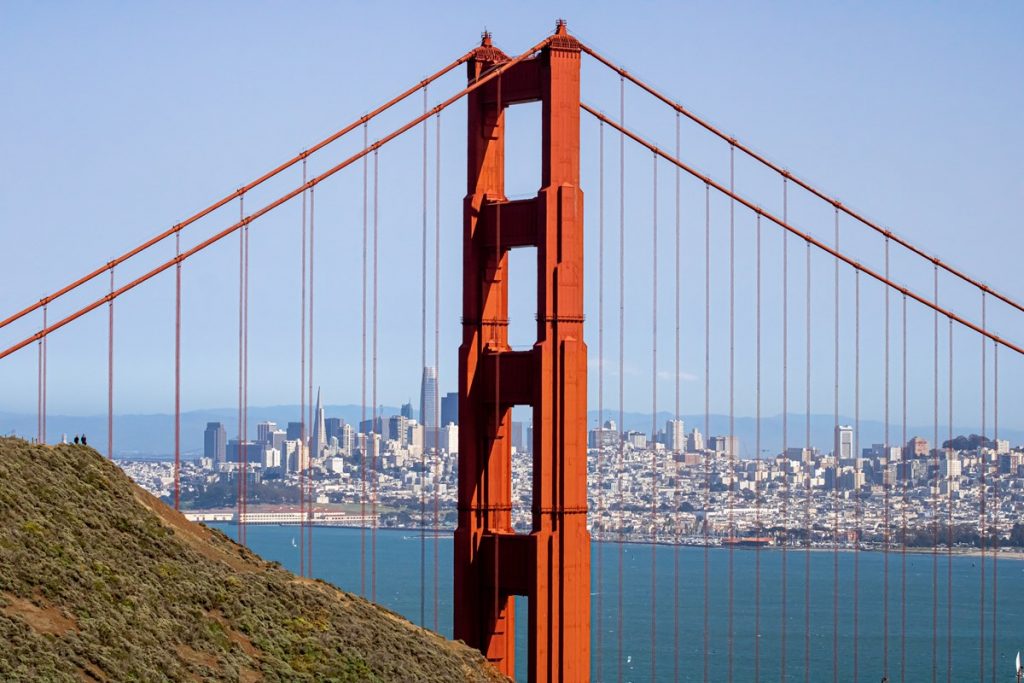
It does not take too much upstairs to see through the Biden administration’s rejection of the JetBlue-Spirit Airlines merger. The latter is on the verge of bankruptcy. It is $1.1 billion in debt. It faces the headwinds of a new labor agreement raising pilot pay by 34% and has trouble with its Pratt & Whitney engines. JetBlue offered Spirit a $3.8 billion buyout. Together the two of them would account for a 10.5% market share, fifth in this industry.
It is exceedingly difficult to see the logic behind this antitrust refusal, unless it is to protect the market share of the “big four”: Delta (17.7%), American (17.2%), Southwest (16.9%), and United (16.1%).
Nor was this the only recent interference with free enterprise on the part of the Biden administration. Another took place with its kibosh on biotech giant Illumina’s $7.1 billion reacquisition of Grail. These bureaucrats have also put paid to deals between air carriers Alaska and Hawaiian, between grocery chains Kroger and Albertsons, and between amusement park giants Six Flags and Cedar Fair. They have been busy little bees ruining the US economy.
A more important consideration is to ask why we need antitrust law in the first place. After all, the entire ethos of competition is to outdo your rivals in terms of providing consumers with a better and more reliable product at a lower price. The better you perform that task, the larger your base of operations becomes… and the more likely you are to run afoul of antitrust law. Here is a public policy that explicitly, knowingly, and purposefully clamps down on entrepreneurship, profits, earnings, and customer satisfaction, the very ideals of the free-enterprise system.
The Rotten Roots of Antitrust Law
The justifications for this set of laws are several. From an academic point of view, it stems from a diagram in microeconomics which has been crammed down the throats of aspiring economics students for lo these many decades. On the basis of it, four indictments of so-called “monopoly” have emerged.
First, the price charged by the monopolist will be higher than that exacted by the perfectly competitive industry. But what is wrong, necessarily, with a higher price? You pay more for a Maserati than you do for bubble gum. Should we legally penalize the purveyors of the former? Of course not. Economic efficiency—and justice too—requires free-market prices, which reflect scarcity and utility; we should not aim solely to minimize prices at any cost.
Second, the monopolist will produce a smaller quantity than the perfectly competitive industry. But there are far fewer of these luxury automobiles than there are pieces of these chewy sticks. Should we get upset about this? Rectify this “problem”? Don’t be silly. There’s nothing wrong with producing less of something if that’s what you decide to do.
Third, the monopolist will earn profits in equilibrium, while firms in the perfectly competitive industry will not. But profits are integral to the free-enterprise system. They make the economy go ’round. They signal entrepreneurs to invest in corners of the economy where they are most needed. Profits are the market’s call for help. Squelching them is akin to imposing decibel control on hikers lost in the wilderness. Further, if the monopoly is sold at a price that fully reflects the present discounted value of this future profit income stream, the new owners will earn zero profits.
Fourth and last and most important in the case against monopoly is deadweight loss (DWL). It is claimed that the area under the demand curve, between the quantity supplied by the two organizational forms, is greater than that which lies below the marginal cost curve. The difference is the DWL. Consumers value the additional quantity more than it costs manufacturers to produce. This constitutes, horrors, a presumed misallocation of resources.
But this is a totally fallacious way of looking at the matter. It commits the fallacy of making interpersonal comparisons of utility, a big no-no in any good economics. It attempts to compare the utilities of buyers and sellers, and cannot account for producers or consumers’ surplus, which are both merely psychological and thus can’t be measured.
I have been calling the economic actor who ruins matters in this example the monopolist. More correctly, he is merely the single seller. The word “monopolist” should be reserved for firms which are able to use violence against their competitors, such as the U.S. Post Office for the delivery of first-class mail, or the Army Corps of Engineers, which does not have to bid against competitors for gigs and accesses funds through taxation, not a voluntary process. Ditto for labor unions, which can dismiss competitors (scabs) through legal violence.
What about Predatory Pricing?
Enough of economists misleading the public on these matters via academic legerdemain. The fear apparent to the man in the street is that if these airplane and other unifications go through, and/or companies grow into being the only suppliers in their respective industries, they will jack up prices to the roof, and renege on promoting the customer satisfaction that brought them the success that enlarged them in the first place.
This widespread apprehension is due to a misinterpretation of the Standard Oil of New Jersey law case of 1911. John D. Rockefeller is used as a stick with which to beat up on the case for eliminating antitrust law root and branch. It is not too dissimilar to holding up a cross to ward off a vampire. John D. is reputed to have cut his prices way below costs, locally; he could afford to do so, since he could finance these losses from the profits of his nationwide holdings of refineries. The local competition was thus bankrupted; they could not compete with his artificially low prices and had no outside sources to finance themselves in this unfair price-cutting he imposed upon them. Then our man JDR would jack up prices to the stratosphere, and march on to the next victim. Eventually, he owned just about the entire oil refinery business in the country. Thank God for antitrust law; otherwise, evil monopolists would take over the entire economy. Or so, at least, goes the usual scare story.
Not so, says John McGee in a brilliant analysis. The real source of Standard Oil’s success had nothing to do with such unfair, made-up, local-price-cutting machinations. Rather, vast success was the result of the fact that Rockefeller could refine oil far more effectively and cheaply than his competitors. As a result, he was able to lower prices and benefit consumers.
Wouldn’t One Big Firm Just Take Over?
Second, the charge that without government regulation One Big Firm would run roughshod over an entire industry—maybe an entire country, not only in oil, but in fast food, groceries, autos, airplanes, etc.—is just plain silly. The charge is that such companies would smash all smaller competitors. If you didn’t work for or patronize one of these behemoths, you didn’t work at all, and you could purchase nothing.
No. The only way companies can succeed under free-enterprise rules is by making better offers, not worse ones, to employees, customers, and suppliers. The moment they get “uppity,” if ever they do, and stop providing better goods and services at lower prices, they get smashed down by the logic of the free-enterprise system: the supposed “victims” go elsewhere; new entrepreneurs spring up.
The One Big Firm, were it to take over the entire economy, would face the same challenges as does the socialistic economy. True, the former would have arisen to its present (hypothetical) status through a voluntary process, we are allowing, but only arguendo, while the latter took over via coercion, a great moral difference. But economically, they would be indistinguishable. Without markets—and there would be none in either case—economic calculation would be impossible.
The leaders of neither would know, could know, whether to build train rails out of steel or platinum; the latter, let us stipulate, would be preferable, but with no market-driven prices neither would know that platinum should be reserved for more important tasks. Further, with no market interest rate they would have no way of knowing whether to build a tunnel through the mountain or set up a highway around it. The former would cost more now, but save money in the future. The latter, the very opposite.
No, the One Big Firm would be a “pitiful, helpless giant” subjected to overwhelming competition from a bunch of Lilliputians. This process would occur long before any one company got too big for its britches, obviating this entire scenario. (For more on this point, see Murray Rothbard’s discussion “Vertical Integration and the Size of the Firm” from Man, Economy, and State.)
It’s Time to End the Antitrust Era
To conclude: by all means allow all of these mergers to take place. If they bring about a better, more reliable product at a lower price, all will be well and good. If not, these companies will lose profits and court bankruptcy.
But let’s also dig deeper than these particular cases, and reform the system that allows central-planning bureaucrats to determine which mergers shall get the thumbs-up signal, and which the thumbs-down.
Additional Reading:
How the Free Market Handles Monopoly by Peter Jacobsen
Good and Bad Monopoly by Leonard E. Read
https://fee.org/articles/debunking-all-the-main-arguments-for-antitrust-laws/

